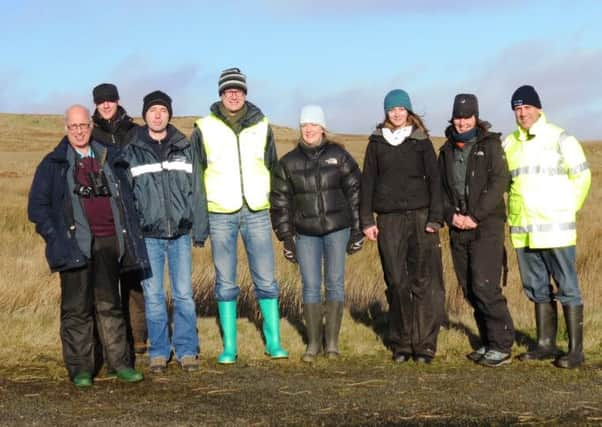Project to protect peatland of plateau


The project is being carried out in partnership with the RSPB (Royal Society for the Protection of Birds) and Northern Ireland Environment Agency,
The Garron Plateau is the largest intact peatland in Northern Ireland and an Area of Special Scientific Interest (ASSI).
Advertisement
Hide AdAdvertisement
Hide AdA peatland bog can bring many benefits to the environment such as increased carbon storage, providing a home for flora and fauna and supply quality raw water to Dungonnell Reservoir.
Roy Taylor, catchment manage, NI Water explained: “The land is damaged and in need of restoration. Over grazing, trampling of livestock and drainage ditches have resulted in the supply of poor quality water to Dungonnell Reservoir.
“This has not only increased costs during the water treatment process but also increased our carbon emissions.
“The damage was also a concern for the RSPB with species such as the hen harrier and golden plover were declining. The RSPB, with funding from NIEA are looking to restore the land and NI Water is currently delivering this plan by working with farmers to reduce grazing pressure and blocking drains.
Advertisement
Hide AdAdvertisement
Hide Ad“The project aims to restore it back to its original condition, secure habitat for wildlife, improve water quality at the source and maximise the bogs potential as a vital carbon store.
“This is the first project of this type undertaken by NI Water and the success so far is as a result of excellent co-operation through Sustainable Catchment Area Management Planning) programme.”